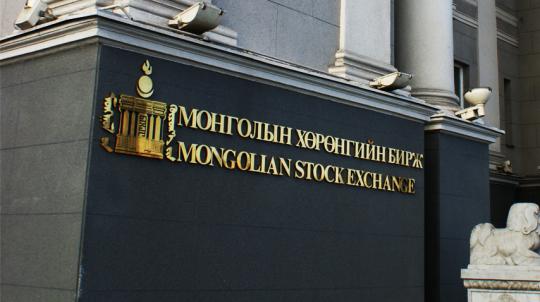Phanar Legal and Novus Law Group Enter Into Strategic Alliance for UK-Mongolian Business
Phanar Legal and Novus Law Group are pleased to announce a strategic alliance to serve the needs of UK-Mongolian business. Whilst remaining separate for legal and regulatory reasons, for UK and Mongolian clients the firms operate as a single firm for client purposes offering clients both English law and Mongolian law expertise. The firms’ combined expertise encompasses all commercial law areas such as Capital Markets, M&A, Joint Ventures and Finance (including export credit finance and aircraft finance) across a number of industry sectors, including mining, transportation, infrastructure, real estate and construction, retail and technology.
Batbayar B, Managing Partner of Novus Law Group commented: “We are delighted at entering into this strategic relationship with Phanar Legal which gives us incredible international reach and capability whilst remaining true to our Mongolian heritage and identity. Phanar Legal is the ideal partner for us and we are already working with them on exciting joint projects with more in the pipeline. The cultural fit between our firms is truly exceptional and stands us in good stead to go from strength to strength.”
Philip Rogers, Senior Partner of Phanar Legal commented: “As the UK reaches outward to the rest of the world Mongolia is a key market for us. With Oyu Tolgoi, the UK is already the largest foreign investor in the country, and together with Novus Law, we are ideally equipped to serve the legal needs of UK-Mongolian trade and investment flows. Novus Law Group and Phanar Legal are both young and dynamic firms sharing the same values around exceptional client service and a global perspective applied locally.”
Her Britannic Majesty’s Ambassador to Mongolia, Philip Malone, commented: “It is pleasing to see this alliance between a British and a Mongolian professional firm come into being which will no doubt play an important role in building strong commercial links between our two countries.”
UK Trade Envoy to Mongolia, Julian Knight MP, commented: “The UK is renowned for the strength of its professional services firms. This is a great example of how professional services firms can work together to promote international trade and investment between the UK and Mongolia.”
All enquiries regarding the strategic alliance should be directed to:
Philip Rogers, Senior Partner, Phanar Legal, +44 20 3915 5618, email: philip.rogers@phanarlegal.com
Batbayar B, Managing Partner, Novus Law Group, +976 7010 4575, email: batbayar@novus-law-group.local
Read More
Auctions for Contracts Are Being Introduced to the Draft Amendment of the Renewable Energy Law
An amendment to the Renewable Energy Law has been drafted by the Energy Regulatory Commission of Mongolia and is being planned to be submitted to the Parliament discussions. Please see below a summary of the main changes to the Renewable Energy Law.
Auctions for Contracts
Among the changes to the Renewable Energy Law, the notable one is the introduction of the auction-based approach for renewable energy contracts. The auction scheme will be adopted in addition to the “Feed-in-Tariff”. The government will announce the location and capacity of a specific renewable energy project and will select the contractor based on the lowest bidding price for the electricity to be delivered to the grid.
The authority in charge of adopting the detailed auction rules and organizing the auction will be the Ministry of Energy, according to the draft amendment.
Sale of Electricity to Distribution Networks from User’s Renewable Energy Sources
Another concept introduced in the draft amendment is the ability to sell electricity to the electricity distribution networks by users with a renewable energy source. Such ability will allow the users to install small capacity renewable sources, such as rooftop solar panels, at their premises and sell energy to the nearby users using the distribution network in the area.
The tariff for the electricity sold by the end-user renewable energy generators to the distribution networks will be determined by the Energy Regulatory Commission and to be reviewed on annual basis. Detailed regulations are currently being drafted.
Feed-in-Tariff Changes
Feed-in-Tariffs (“FIT”) of renewable energy sources selling electricity to the grid is being changed under the draft amendment. Please see below respective changes in FIT per kWh.
| Source | Old FIT | New FIT |
| Wind Sources | 8.00 – 9.50 US Cents | Up to 8.00 US Cents |
| Solar Sources | 15.00 – 18.00 US Cents | Up to 12.00 US Cents |
Proposed FITs are approximately 15-30% lower than the current maximum FITs and eliminate the minimum limit of FIT as opposed to the current FIT in the law. The draft amendment currently does not provide whether such changes in the FIT will retroactively apply to current renewables projects with FITs approved by the Energy Regulatory Commission.
Miscellaneous
Another change proposed in the draft amendment law is that the sellers under the Power Purchase Agreements to submit a project implementation guarantee (in the form of a bank guarantee or deposit) for guaranteeing the performance of the seller’s obligations under the Power Purchase Agreement. The amount of the guarantee is currently being proposed by US$ 50.00 per kW.
Read More
Mongolia: Directives for Privatization and Restructuring of State Owned Entities
Currently, there are 102 State enterprises operating in Mongolia. Most of these enterprises are wholly owned by the State whereas some have less than 100% State ownership. Out of these 102 entities, 10 are operating under Erdenes Mongol LLC and 5 under the Ministry of Finance while 87 are operating under the Government Agency for State Property Policy and Coordination. The Parliament decides the timing, method of privatization, and restructuring for the Government to undertake the actual implementation.
Privatization is still continuing in phases since Mongolia first legalized the concept of private property and approved privatization laws in the early 1990s. The Parliament enacted main directives for privatization (‘Privatization Directives’) over the years, specifically 2001-2004, 2005-2008, 2010-2012, and 2015-2016, which were amended and, in some cases, partially invalidated from time to time. These main directives set forth the list of State-owned entities that must be privatized or restructured along with specific method, timing, and use of proceeds. Due to various circumstances and challenges, not every directive is implemented within the specified timeframe. Therefore, in some years, the Parliament directed the Government to undergo the then-existing Privatization Directives, without approving a new one.
The 2015-2016 Privatization Directives, which was approved by the Parliament Resolution #70 dated July 03, 2015, is currently effective. In order to implement this resolution, the Government issued Resolution #330 in 2015, specifying the privatization method and timeframe for each State entity identified in the directives (see below).
| State entities | Privatization proportion and method | Implementing timeframe |
| CHP2, CHP3, CHP4 Darkhan Power Plant Erdenet Power Plant | The state keeps 70%; 30% dilutive secondary offering | 4th quarter of 2015 |
| Ulaanbaatar Power Transmission Grid | Separate the power supply business to a new company and privatize a newly created company | 4th quarter of 2015 |
| Erdenet-Bulgan Power Transmission Grid | Open tender | Unclear |
| National Dispatch Center | Restructure to a commercial operator company | Unclear |
| Erdenes Tavan Tolgoi | Sell the State owned shares through public offering | Unclear |
| Shivee Ovoo Coal Mine Baganuur Coal Mine | State keeps 70%; 30% dilutive secondary offering | 2016 |
| Khutul Cement and Lime Factory | 100% privatization | 4th quarter of 2015 (implemented) |
| Orgil Sanatorium Resort | 100% privatization | 4th quarter of 2015 (implemented) |
| College of Film | Sell 51% currently held by the State through open tender | 4th quarter of 2015 (implemented) |
| Auto Impex | Sell 51% currently held by the State through open tender | 4th quarter of 2015 |
| Mongol Post | State keeps 66%; 34% dilutive secondary offering | 4th quarter of 2015 (implemented) |
| Mongol Telecom | Sell 51% currently held by the State through open tender | 4th quarter of 2015 |
| Agricultural Commodity Exchange | State keeps 34%; 66% dilutive secondary offering | 2016 |
| Mongolian Stock Exchange | 100% privatization | Unclear |
| State Bank | 100% privatization | Unclear |
As shown above, only 4 companies (Khutul Cement and Lime Factory, Orgil Sanitorium Resort, College of Film, and Mongol Post) were privatized by the Government to date.
The Parliament amended the 2015-2016 Privatization Directives in November 2015 and November 2016, respectively, and directed to the Government to implement it until the new directives for 2017-2018 are approved. However, the new directive has not been approved.
According to some sources, the Government is working on the 2018-2020 Privatization Directives. The scope and timing of such directives are unclear at present. It is likely that the State enterprises that are listed in the previous directives would be included in the new directive but with revised method and timing.
Read More
Indirect Transfer of Mineral Licenses – Taxable Starting from January 1, 2018
The tax treatment of offshore/onshore indirect transfers i.e. sale of shares of a Mongolian company holding mineral license(s) – has emerged as a significant issue in recent years in Mongolia.
The report prepared by the staff of the International Monetary Fund on “Safeguarding domestic Revenue-A Mongolia DTA[1] Model” from 2012 (“IMF Report”), as part of technical assistance to the Mongolian Government, points to the absence of taxing mechanisms for an “indirect transfer of mineral licenses” under Mongolian laws and notes the following:
- Mongolia is only able to safeguard its taxing rights on an indirect sale of exploration and mining licenses in a limited number of DTAs;
- Mongolia should include a provision in its DTAs that reserves its right to tax capital gains on the sale of shares that derive more than 50 percent of their value from immovable property situated in Mongolia”.
New Regime
With effect commencing from 1 January 2018, an indirect transfer of mineral licenses will be subject to tax pursuant to the amendments to the Minerals Law, Law on Registration Legal Entities and the Business Entity Income Tax Law (“BEITL”) from November 10, 2017 (“Amendments”), which is believed to be a direct outcome of recommendations made to the Mongolian Government by various multinational and aid institutions over the years.
The Amendments provide:
- that the sale of shares of a Mongolian company, holding a mineral license, in whole, or in part, by a “beneficial holder” shall be subject to income tax in Mongolia;
- that any such transfer of mineral license shall be deemed “sale of right” pursuant to Article 17.2.7 of the BEITL, as such, shall be subject to tax at the rate of 30%;
- that any tax evasion, misreporting of income, or failure to provide documents to be used for the valuation (of shares/ and underlining assets i.e. mineral license)) shall serve as the ground for termination of a mineral license.
Transfer-Pricing and Re-assessment of Taxes
Under the current regime, the taxes to be paid in connection with the transfer of mineral licenses are separately reviewed, and if deemed necessary, re-assessed, based on Article 48 of the General Taxation Law and Article 11 of BEITL by the designated department of the General Taxation Office.
Only after the completion of such review, do the tax authorities allow the transfer a mineral license. When conducting its valuation of mineral licenses, the tax authorities take into consideration all investments put into the project, the total amount of license fees paid, and in case of mining licenses, the value of equipment and ancillary facilities to the mine, etc.
We note that there is no detailed methodology for transfer pricing in the Mongolian tax laws which allow for a restatement of income when goods are sold/transferred for a value less than the market price. Although the concept of the market price is somewhat obscure, especially in the case of mineral exploration licenses, the above procedure has been consistently followed by the tax authorities since 2011 and involved considerable discretion on the side of the tax authorities.
The Amendments provide that the detailed methodology for the valuation of shares (along with underlying assets) and assessment of taxes shall be adopted by the Ministry of Finance.
Therefore, it is anticipated that the Ministry of Finance will adopt detailed rules pertaining to the determination of arm’s-length pricing of the shares in question, simultaneously with the Amendments entering into the effect.
Effect of Double Taxation Treaties
Mongolia is a signatory to 25 double taxation treaties. Most tax treaties Mongolia has entered into contain typical UN and OECD model tax convention wording which provides that that with respect to the sale of shares that capital gains tax is to be paid only in the country of residence of the seller, except where the gain is “derived from the alienation of shares deriving more than 50 percent of their value directly or indirectly from immovable property (definition of “immovable property” normally includes “mineral licenses”) situated in the other Contracting State may be taxed in that other State” (i.e. Mongolia). Other treaties omit the “except” entirely, which seems to provide for capital gains to be paid in other treaty party jurisdiction only even in respect of companies where the value is derived from mineral licenses.
Shortcomings and Conclusion
The Amendments do not provide for an exemption for the transfer of shares as part of intragroup restructuring and sale of shares through trading on stock exchanges. These shortcomings will need to be rectified by the Parliament in a timely manner as they may adversely affect the investment image of the country.
Given the above developments, investors should consider obtaining thorough tax advice and conduct double taxation treaty analysis before structuring the corporate holdings of their mining projects in Mongolia.
[1] DTA refers to “Double Taxation Agreement” Read More

New Regulations: Tax on Transfer of Land Possession and Use Rights, Registry of Ultimate Beneficial Owners
On 9 November 2017, the State Great Hural (Parliament) of Mongolia adopted amendments to the General Taxation Law, Corporate Income Tax Law, Personal Income Tax Law, Legal Entity Registration Law, and Land Law.
Tax on Transfer of Land Possession and Use Rights
Until recently, there has been no precedent for imposing taxes on the transfer of land rights and the transfer of shares of companies that hold land rights.
On 9 November 2017, the State Great Hural (Parliament) of Mongolia adopted amendments to the Legal Entity Registration Law, Land Law, Corporate Income Tax Law, and Personal Income Tax Law and legislated for the first time that any direct and indirect transfer of land possession and use rights by individuals and legal entities will be subject to tax. These new regulations will become effective from 1 January 2018.
We summarize the key elements of the new regulations as follows:
- Business entities will be subject to income tax at the rate of 30 percent on taxable income derived from a direct transfer of land possession and use rights whereas individuals will have to pay 10 percent income tax on the same income.
- Any transfer of shares by the Ultimate Owner of a company that holds land possession and use rights will be subject to a 30 percent tax. In such cases, the value of the land right will be proportioned to the number of shares transferred by the Ultimate Owner.
- The Ministry of Finance will approve a detailed methodology for determining taxable income from direct and indirect transfers of land possession and use rights.
- Income derived from transferring land possession and use rights between family members free of charge will be exempt from personal income tax.
- Holders of land possession and use rights must pay the applicable taxes prior to the transfer and must submit a bank receipt evidencing the tax payment along with an application for the transfer of land rights.
- If land right holders fail to declare and pay applicable taxes, the land authority will terminate the land rights and claim for repayment of damages.
- Companies that hold land possession and use rights must withhold or deduct the applicable taxes and pay such to the State budget within 7 business days after the relevant transaction was made.
We expect that the methodology to be approved by the Finance Minister will provide for more detailed rules and clarifications on determining taxable income and withholding taxes.
New Requirement to Register Ultimate Beneficial Owners
Companies that hold land possession and use rights must provide information about their Ultimate Owners with their registered tax offices within 1 June 2018.
The term “Ultimate Owner” includes persons who directly or indirectly owns the largest number of shares or voting rights. Where another legal entity is a shareholder (rather than an individual), disclosure of beneficial ownership further up the chain of legal entities is required until the ultimate owner is identified.
Read More
New Mining Law Draft Incoming
Minister of Mining and Heavy Industry Ts.Dashdorj and Minister of Justice and Internal Affairs S.Byambatsogt have approved a concept for a new Mining Law draft in January 2017. A new working group was established at the Ministry of Mining and Heavy Industry to draft the new Mining Law, which would form the basis of the mining legislation and considered to be one of the most important legal approaches to the geological and mining industry.
The new Mining Law covers the gap that the current legislations that regulating mining where the issues related to the investment, prospecting, mining, processing of minerals, rehabilitation, occupational safety as well as the mine closure are left uncovered. The existing Minerals Law, adopted on 08 July 2006 and amended numerous times, focuses more on regulating licensing and cadastral activities. However, the current Minerals Law will remain effective and will not be replaced by the proposed Mining Law, whereas, current Law on Common Minerals will be completely replaced by the Mining Law.
Scope of the new Mining Law draft
The new Mining Law now being drafted aims to regulate all aspects of the mining lifecycle starting from the establishment to closure of mine including geological survey, exploration, conducting a feasibility study, mining, processing and sale of minerals, protection of the environment, health and safety of the miners themselves. It covers 145 articles.
There is a widely-held hope that the new Mining Law will bring positive changes that clarify the roles and responsibilities of government authorities and license holders and will help to regain the foreign and domestic investment.
Read More
Draft Law on Investment Banking has been submitted
On December 28, 2016, several parliament members including Javkhlan.B, submitted the bill of law on Investment Banking (the “Draft Law”) to the Parliament of Mongolia. However, the Draft Law was not included in the agenda of the matters to be discussed in the spring session of the parliament, the Draft Law had put to be discussed in the economic standing committee of the parliament and general discussion of the parliament session within April 2017.
Main points of the Draft Law are:
- only foreign banks can establish an investment bank;
- the foreign bank that intends to incorporate a bank in Mongolia is required to establish its representative office and carry out its operation at least one year before opening the bank.
- operation by investment banking is limited by certain banking and financial activities that are specifically permitted by law, such as, to issue long-term debt, to conduct transactions related to its borrower’s account, to issue guarantee and warranty, to buy and sell loans and securities, underwriting, etc.
- the minimum share capital of the investment bank is MNT500 billion (approx. USD200 million);
- the minimum amount for a single loan and guarantee or warranty is MNT100 billion (approx. USD40 million)
- one of the independent directors of the board of investment bank must be a Mongolian citizen;
- Mongol Bank must consider any potential adverse effect to the national security in issuing its permission to establish an investment bank;
- Mongol Bank will issue its decision on permission within 90 days;
- The matters not specifically regulated by Investment Banking Law shall be governed by the Banking Law (2010) and other applicable laws.
The restrictions stated in the Draft Law are only applicable to the bank fully-owned by a foreign bank, and it appears that restrictions will not apply if a foreign bank owns the share interest less than 100% in such bank.
We assume that financial experts in the area and foreign banks which already established their representative office in Mongolia will deliver their opinion on the Draft Law.
Our opinion is that, without enacting the separate law, it is preferable to regulate the operation and licensing of the foreign bank’s branches or fully owned subsidiaries through the amendment of the existing financial and banking laws and regulations. Therefore, it is insignificant, if the definite global terminology “investment banking” is used as an instrument to regulate the operation and licensing procedures of foreign banks. If it is deemed necessary to enact the separate act by the legislators, it would be appropriate to formulate the law by modifying and rephrasing it, without collision and conjunction with the other laws and regulations.
Read More




